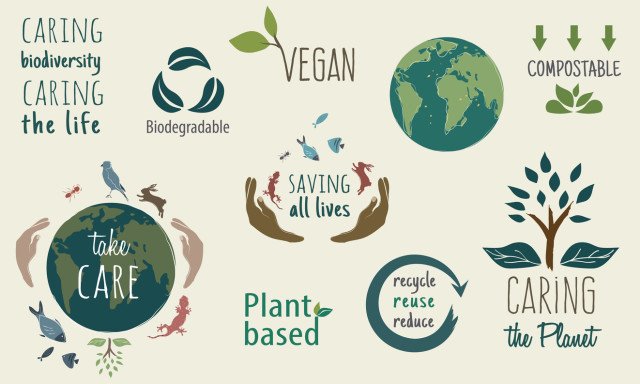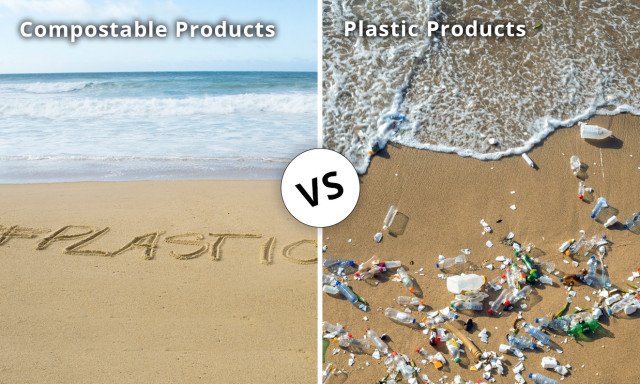The Eco-Friendly Revolution Embracing Compostable Products
- Posted on June 12, 2022
- Nature
- By Elly Blogger
- 1060 Views
Compostable products are items or materials that are designed and manufactured to be biodegradable and capable of breaking down into natural, non-toxic substances when subjected to specific composting conditions. These products are typically made from organic and renewable materials such as plant-based plastics, paper, cornstarch, or other natural fibers.

Composting is a natural biological process where organic matter, like food scraps and yard waste, decomposes into nutrient-rich soil conditioner known as compost. Compostable products mimic this process, and when placed in a suitable composting environment, they break down into water, carbon dioxide, and organic matter without leaving behind harmful residues or pollutants. Compostable products contribute to waste reduction and can be used to enrich soil when fully composted, making them an environmentally friendly alternative to traditional plastics, particularly for single-use items and packaging.
Benefits for Compostable Products
Compostable products offer several benefits, both environmental and practical, which make them an attractive alternative to traditional non-biodegradable products. Some of the key benefits of compostable products include:
- Reduced Environmental Impact: Compostable products are made from organic and renewable materials, reducing the consumption of non-renewable resources and the environmental impact associated with the extraction and production of traditional plastics.
- Waste Reduction: Compostable products help reduce the amount of waste sent to landfills and incinerators. When properly composted, they break down into organic matter, contributing to waste diversion and lessening the burden on landfill space.
- Lower Carbon Footprint: The production of compostable products typically generates fewer greenhouse gas emissions compared to the production of conventional plastics, which are derived from fossil fuels. This helps mitigate climate change.
- Improved Soil Health: Compostable products, when fully composted, enrich the soil with organic matter, improving its structure and nutrient content. This can enhance agricultural productivity and reduce the need for chemical fertilizers.
- Reduced Plastic Pollution: Compostable products break down naturally, reducing the risk of plastic pollution in ecosystems, including oceans and waterways. They help mitigate the harmful effects of plastic waste on wildlife and the environment.
- Biodegradability: Compostable products biodegrade into harmless substances like water, carbon dioxide, and organic matter, with no toxic residues left behind. This ensures that they do not harm the environment during decomposition.
- Versatility: Compostable products can be used in various applications, such as food packaging, cutlery, disposable tableware, agricultural mulch films, and more. They offer a sustainable alternative for single-use items and short-term applications.
- Consumer Appeal: Many consumers are increasingly looking for eco-friendly and sustainable alternatives, and compostable products align with these values, making them appealing to environmentally conscious consumers.
- Regulatory Support: Some regions and governments encourage the use of compostable products by providing regulatory support, tax incentives, or subsidies to promote their adoption.
- Contribution to Circular Economy: Compostable products are part of the circular economy model, where materials and products are designed to be reused, recycled, or composted, reducing the need for raw material extraction and disposal.
It's important to note that for compostable products to realize these benefits, they need to be properly managed in composting facilities or home composting systems, following specific guidelines for temperature, moisture, and aeration to ensure effective decomposition.
Join us on an inspiring journey into the eco-friendly revolution that's sweeping the world. Discover the innovative world of compostable products and how they are transforming our daily lives while reducing waste and environmental impact.





Write a Response